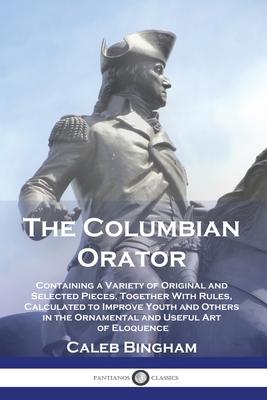The Columbian Orator, Caleb Bingham's classic work of 1797, contains both the oratory of the American Founding Fathers alongside imagined speeches from gifted orators of past epochs.
Exceptional both for its contents and greater impact upon the fledgling society of the United States, this compendium of fine speech carries great historical and cultural value. As well as American speeches, this collection contains historic addresses from Europe, ranging back to ancient Rome. From about 1800 to 1820 it was recited and taught widely in schools across the US, instilling the importance of both patriotic pride in the new nation and the value of eloquent speaking. Bingham hoped to create a new generation of passionate American speakers, that leadership in the future would carry a wellspring of honed rhetorical talent from which to draw.
Notably, several entries in this collection articulate opposition to slavery, which at the time was legal and widely practiced in the USA. It discusses the lack of ethics enslavement entails, thereby capturing the hearts and inspiring the-then fledgling abolitionist movement of America. Bingham's work was paid tribute in later decades by talented speakers such as Frederick Douglass, who read this book many times as an enslaved child, and Harriet Beecher Stowe, who authored the famous anti-slavery novel, Uncle Tom's Cabin.
